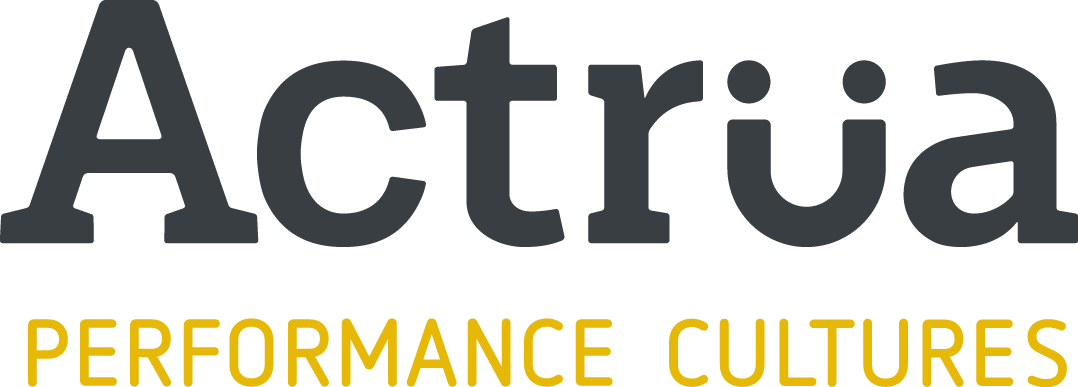This is final part of our three-part interview with Neil. If you missed part 1 & 2 of the interview, please click here.
Andrew: How do you go about developing leaders within Act for Kids?
Neil: When I am talking about leaders, I’m not talking about a position. I am talking about a state of mind.
Firstly, we put a lot of work into induction. It is important to understand who we are, our sense of purpose. I learnt this lesson at the Mater Hospital. I was called to a meeting to watch a new recruitment video for overseas trained doctors. The video went for five or so minutes and it was a highly professional production. After watching this video, I was crying. I had just so much pride about the place I was working. Thirty or forty babies born every day. World class surgeons performing procedures like twin-twin in-utero transfusions. Really complex procedures. I wasn’t a clinician, but I was a part of that journey. I said to the CEO, we need to be showing this video to our staff. Because, they need to see this. They need to know what an amazing place they work for.
At Act for Kids, we have put a lot of energy into organisational induction. And we double down on leader’s induction. I often see people who have been in the business for five or six years and then they pop up in the Leaders Induction. I say to them, that is great. You have been great leading yourself and leading within the organisation. Now we want to turn the volume up on your leadership of others and leadership within the organisation.
Inductions are where you can do some of that implanting of DNA. I am quite proud of the fact that I speak at every leadership induction. It is very important. I feel, there is nothing more important. It is where I get an opportunity to shape and mould our leaders of the future. I have people come to me in tears saying they did not realise how awesome our organisation is. I recently just completed a fund-raising hike to Kokoda and I have had staff donate money from those meetings because they really get what we are doing here at Act for Kids.
I am quite proud of the fact that I speak at every leadership induction. It is very important. I feel, there is nothing more important.
We also put a priority on our investment in professional development for our staff and leaders. I remember once doing a workshop for a group of senior medical staff at a regional hospital. A senior Anaesthetist very cynically put up his hand and said, “so you are telling me I should invest in these young Doctors, send them on workshops, give them all these leadership opportunities, invest all this money in them and then they will just up and leave us for another hospital.” I had to take a deep breath. I looked this Clinician in the eye and said “yes, and the alternative is what, don’t invest in them? Don’t grow them, don’t develop them and they will be with you forever.” You could see the colour drain from this fellow’s face.
I remember during a recruitment process at the Mater Hospital I asked a young surgical educator “Why do you want to work here”? To which he answered, “well everyone knows this is where you get the best professional development in Australia”. I thought, “yes”. That is what you want because you are then like a flame to moths. Talent will come. Talent then begets talent. People want to be around successful people.
At Act for Kids we have set up an educational trust fund to provide development opportunities. Typically, senior leaders will get to go to the conference or the course they are seeking. This fund is designed to create an opportunity where anyone in our business can bid into a pool of funds so we can spread some great development opportunities around. It is a way of recognising people and saying “hey, we have noticed you” and giving something back to them. It is not a cost centre, it is an investment centre.
When I arrived in this role I was alarmed that when someone would go on leave, often reluctantly, no-one would act in the absent position. Now we have a formal procedure to ensure people act in the role, even just for one day. For anything over nine days they are paid a loading. The money is hardly significant, but it is an important nod of thanks. Where possible, we also move the person into the office too. It says to people, we encourage you to step up and have a go.
***
Andrew: Do you have internal leadership development programs?
Neil: Yes, we do. I am a big fan of what I call your “internal facilitating faculty”. I think most organisations are missing a great opportunity. I say to them, it is fine to bring me in to run a leadership workshop for you. We’ll do some great stuff together. But you know what, you have got some outstanding leaders sitting in this room. What are you doing to get them to share their knowledge and experience? I call it “tilling your own soil”. Particularly some of these big organisations, such as the Mater with over 7000 people. We had a fellow who was a world expert in Cranio-Facial surgery. His colleagues wanted to learn from him. Many others wanted to also. We ended up selling tickets to people outside the organisation. It generated an income, but most importantly it grows that culture of growth and development within your people. I feel that at times there is a tendency to focus too much on bringing in the outside expert.
You have got some outstanding leaders sitting in this room. What are you doing to get them to share their knowledge and experience? I call it “tilling your own soil”.
***
Andrew: If you time travelled back 20 years, what advice would you give to your younger self regarding leadership?
Neil: Well, this one is always a great question. You hear people say they have no regrets. Well I think you are missing the point if you say that. It is not about regrets. It is about being deeply reflective. Something I promote as important for leaders is “meta-cognition”, which is thinking about your own thinking. This requires balanced reflection.
What scaffolded feedback means is getting deep, rich, authentic feedback.
After some reflection, the thing I would say to myself is I should have listened more deeply. I was pretty good at surface level listening, but not what I would call being present – deep listening. The other thing, and I feel it is something I do quite well today, is the concept of scaffolded feedback. What scaffolded feedback means is getting deep, rich, authentic feedback. If I said to you Andrew, I have an interview coming up with XYZ magazine and the questions are very similar to this one so maybe you could give me some feedback to help prepare. Could you tell me what really resonated for you as a leader? What was probably not terribly useful? What should I have spent a little more time explaining? And what did I not mention, that you think I should have? I will get a much richer response.
In a work context and particularly between people who work together a lot, if you do it often enough, you get deeper, richer, more authentic feedback. Most people who have never been down this track get very defensive. They will listen when they are hearing good stuff. But as soon as they hear something they don’t like, they will shut down. I would say that twenty years ago, I didn’t get anywhere near as much feedback as I do today. When I heard things that I didn’t really like, I typically got too defensive.
I think back to a situation that coincidentally happened around 20 years ago. I had a good coach at the time and he encouraged me to get scaffolded feedback. A Nurse I worked closely with told me I was doing amazing things and getting people to work together. On hearing that I puffed my chest out. Then she said, “but you don’t listen to people”. You know what I said to this lady? “Yes, I do.” Thankfully, she had the intestinal fortitude to say, “Neil, you asked me a question so please listen”. She said, “you are so busy, you don’t listen to people”. To this day it still raises the hair on the back of my neck when I share this story.
I realise that even whilst she was talking, I was thinking “don’t you realise what a nice person I am”. I still wasn’t really listening. It wasn’t until I went to multiple people in my team, and also my Wife, that I realised that maybe I need to shut up and listen a bit more. That was quite a turning point for me.
When someone gives you feedback like that they are not your enemy. They do it because they care. It doesn’t mean you just jump around and do what everyone says. You are looking for themes. Wow, that is interesting, four people have said that same thing. If you say to me, Neil you don’t really listen. Does it matter if I do or if I don’t? That is your perception and what is relevant is why do you hold that perception? Ultimately it is important that you stay in a balanced, reflective state.
If I was to look back on myself in 20 years’ time, I’d probably have a laugh and identify some areas that need a bit of work. I’m not a perfect leader and I am always learning. There may be mistakes made along the way, but you have to learn from those dips in the road. At least you are having a go and that is the leader’s role.
Andrew: Thank-you for sharing your time and insights today Neil. I have personally found some great pieces of wisdom that I will certainly take away and I am sure that anyone reading this will do the same.
***
As part of the Trek 4 Kids campaign, Andrew will be completing the Three Capes Lodge walk in Tasmania from the 5th to 9th September. To donate click on the link http://www.trekforkids.com.au/three-capes/
Dr Neil Carrington is available for speaking and consultancy. All fees go directly to ‘Act for Kids’ and to date he has raised over $3m in funds for this most worthy cause. Dr Carrington was the Harvard Club of Australia Fellow 2012/2013. He most recently was the Foundation National Director of the Leadership Centre for the Australian Council for Educational Research (ACER). He was the Foundation Director Education for Mater Health Services. He has held senior academic posts at a number of universities and has been on the Board of Brisbane South Bank, Youthrive and the BGW Group. He has presented at over 600 conferences worldwide.







